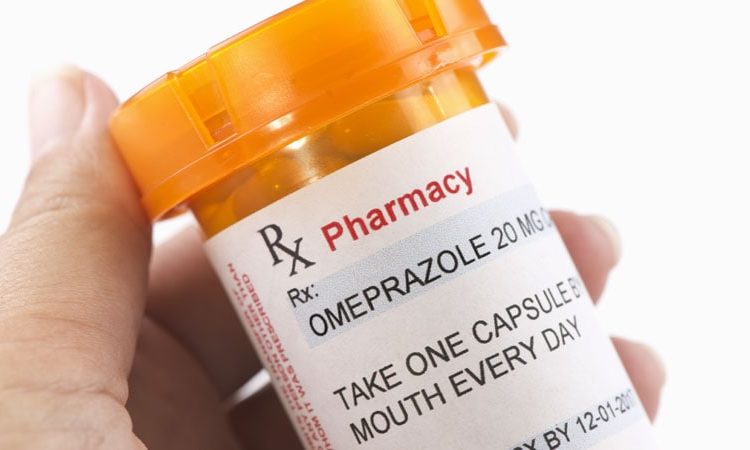Among people with type 2 diabetes who self-reported regularly using a proton pump inhibitor (PPI), the incidence of cardiovascular disease (CVD) events as well as all-cause death was significantly increased in a study of more than 19,000 people with type 2 diabetes in a prospective UK database.
During median follow-up of about 11 years, regular use of a PPI by people with type 2 diabetes was significantly linked with a 27% relative increase in the incidence of coronary artery disease compared with nonuse of a PPI, after full adjustment for potential confounding variables.
The results also show PPI use was significantly linked after full adjustment with a 34% relative increase in myocardial infarction, a 35% relative increase in heart failure, and a 30% relative increase in all-cause death, say a team of Chinese researchers in a recent report in the Journal of Clinical Endocrinology and Metabolism.
PPIs are a medication class widely used in both over-the-counter and prescription formulations to reduce acid production in the stomach and to treat gastroesophageal reflux disease and other acid-related disorders. The PPI class includes such widely used agents as esomeprazole (Nexium), lansoprazole (Prevacid), and omeprazole (Prilosec).
The analyses in this report, which used data collected in the UK Biobank, are “rigorous,” and the findings of “a modest elevation of CVD risk are consistent with a growing number of observational studies in populations with and without diabetes,” commented Mary R. Rooney, PhD, an epidemiologist at the Johns Hopkins Bloomberg School of Public Health in Baltimore, who focuses on diabetes and cardiovascular diseases.
Prior Observational Reports
For example, a report from a prospective, observational study of more than 4300 US residents published in 2021 that Rooney co-authored documented that cumulative PPI exposure for more than 5 years was significantly linked with a twofold increase in the rate of CVD events compared with people who did not use a PPI. (This analysis did not examine a possible effect of diabetes status.)
And in a separate prospective, observational study of more than 1000 Australians with type 2 diabetes, initiation of PPI treatment was significantly linked with a 3.6-fold increased incidence of CVD events compared with PPI nonuse.
However, Rooney cautions that the role of PPI use in raising CVD events “is still an unresolved question. It is too soon to tell if PPI use in people with diabetes should trigger additional caution.” Findings are needed from prospective, randomized trials to determine more definitively whether PPIs play a causal role in the incidence of CVD events, she said in an interview.
US practice often results in unwarranted prolongation of PPI treatment, say the authors of an editorial that accompanied the 2021 report by Rooney and her co-authors.
Long-term PPI Use Threatens Harm
“The practice of initiating stress ulcer prophylaxis [by administering a PPI] in critical care is common,” write the authors of the editorial. “Although it is data driven and well intentioned, the possibility of causing harm ― if it is continued on a long-term basis after resolution of the acute illness ― is palpable,” warn Nitin Malik, MD, and William S. Weintraub, MD, in their editorial.
The new analyses using UK Biobank data included 19,229 adults with type 2 diabetes and no preexisting coronary artery disease, myocardial infarction, heart failure, or stroke. The cohort included 15,954 people (83%) who did not report using a PPI and 3275 who currently used PPIs regularly. Study limitations include self-report as the only verification of PPI use and lack of information on type of PPI, dose size, or use duration.
The findings remained consistent in several sensitivity analyses, including a propensity-score matched analysis and after further adjustment for use of histamine type-2 receptor antagonists, a drug class with indications similar to those for PPIs.
The authors of the report speculate that mechanisms that might link PPI use and increased CVD and mortality risk could include changes to the gut microbiota and possible interactions between PPIs and antiplatelet agents.
The study received no commercial funding. The authors and Rooney have disclosed no relevant financial relationships.
J Clin Endocrinol Metab. Published online December 27, 2022. Abstract
Mitchel L. Zoler is a reporter with Medscape and MDedge based in the Philadelphia region. @mitchelzoler
For more diabetes and endocrinology news, follow us on Twitter and Facebook.
You can also follow Medscape on Instagram, YouTube and Linkedin.
Source: Read Full Article
